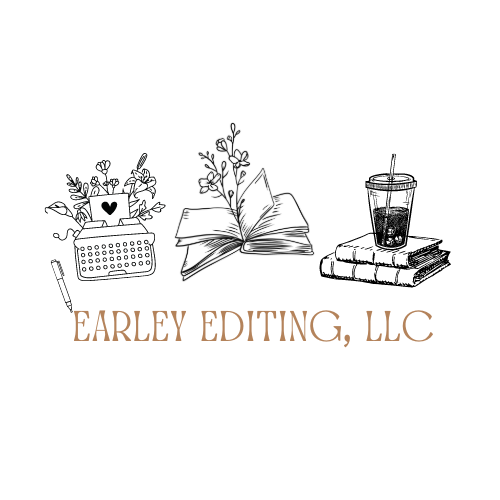How Professional Editing Can Improve Reviews
With self-publishing becoming more and more popular, and authors realizing that their book is a product and they are a business as an author, self-published books are starting to compete with those that are traditionally published. Getting a professional set of eyes on your book to edit plays a crucial role not only in the quality of your writing, but the reviews you receive. If you’re writing a series, professional editing can also impact your sales.
Before delving in, it’s important to note that reviews are subjective and not every reader will have the same opinion. However, a well-edited book is more likely to receive positive reviews due to its overall professionalism, readability, and ability to engage and satisfy readers.
The timeline for professional editing proceeds as follows: Developmental Editing, Line Editing/Copyediting, and then Proofreading. Traditionally published authors go through each phase of editing through an editor that is provided by the publishing house, as they are part of their team. When it comes to self-publishing, the author is responsible for the expenses that comes with each editing service. Some self-published authors go through each stage of editing, while others have to pick and choose based on their budget.
Enhancing Clarity and Flow: A professional editor can help improve the clarity and flow of your writing. They can identify and rectify confusing or awkward sentences, ensuring that your ideas are communicated effectively to readers. Clear and well-structured writing can enhance readers' understanding and engagement, leading to positive reviews.
Correcting Grammar and Punctuation: Grammar and punctuation errors can distract readers and diminish their reading experience. Professional editors are skilled at correcting grammar, spelling, and punctuation mistakes. By ensuring your writing is polished and error-free, editors help maintain a high level of professionalism, which can contribute to positive reviews. On the other end of this, having grammar, spelling, punctuation mistakes can lead to negative reviews due to how it distracts from the story. Even with the most engaging plot, a reader can grow frustrated by its readability in terms of grammar.
Strengthening Plot and Structure: Editors can provide valuable feedback on the overall structure and plot of your book. They are trained (if they have the correct credentials) to identify pacing issues, plot holes, or inconsistencies, and suggest improvements based on their findings. A well-crafted plot and cohesive structure can keep readers engaged and satisfied, leading to positive reviews.
Refining Character Development: Characters are the heart of any story. Professional editors can help you develop more realistic, relatable, and well-rounded characters by providing feedback on their actions, dialogue, and motivations. Strong and compelling characters can resonate with readers and elicit positive reviews about their depth, authenticity, relatability, and more!
Improving Dialogue and Voice: Dialogue is an essential aspect of storytelling, and an editor can assist in making it more engaging and authentic. They can help you refine the dialogue by ensuring it sounds natural, advances the story, reveals character traits, and is grammatically correct. Many authors confuse dialogue tags and action tags, and lack the necessary flow that comes with dialogue. Hiring a professional editor for such an important element of story will help with reviews.
Polishing Descriptive Language: Descriptive language sets the scene, creates imagery, and immerses readers in your story. Professional editors can help you refine and enhance your descriptions, improving them to be more vivid, evocative, and engaging. Well-crafted descriptions can evoke emotions and draw readers into the world you've created, contributing to positive reviews about your writing style. Description is where “show, don’t tell” plays a role. You know how it’s almost always raining during a funeral scene in movies? If your narrator is feeling sad, they should view the world around them in a gloomy way.
Ensuring Consistency and Accuracy: Editors pay attention to details and can help maintain consistency throughout your book. They can ensure that details, such as character names, timelines, settings, or plot elements, are accurate and cohesive. Consistency and accuracy demonstrate professionalism and enhance the reading experience, leading to positive reviews.
At the end of the day, not everyone can afford to go through each stage of professional editing. Therefore, if nothing else, every writer should at least hire a proofreader to give themselves a better chance of not receiving negative reviews based on grammar, punctuation, fluidity, etc.
Earley Editing, LLC self-publishing timeline



